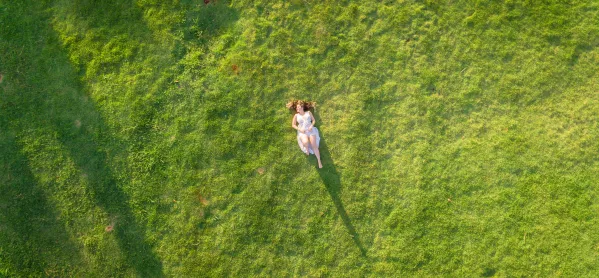Summer holidays: How will you spend your time off?

Congratulations, you made it: the summer is finally here! After the most difficult 18 months in a generation for educators (and the majority of the rest of the world), we finally have time to unwind and relax after a frantic and challenging year. Whether enjoying a six- or seven-week break from school, or a different period of holiday in colleges and other settings, the majority of teachers and leaders throughout the country are currently enjoying a well-deserved break.
As much as restrictions have been lifted, and we are slowly getting back to normal, there are still some things that we’re not able to do, however. With travel agents, hotels and holiday destinations looking to recoup some of their losses from the last 18 months, and the majority of people in the country wanting to blow off some steam after several lockdowns, few of us are holidaying as we have in previous years. So, what else can we do?
Exercise
Though we would all like to do more exercise, this can be difficult when juggling planning, marking, teaching and everything else that comes with the job (and even more so when considering family commitments and other daily challenges). And, with most people gaining an average of half a stone during lockdown, the free time over the next month represents the perfect opportunity to improve our health. This can be anything from going for a daily walk to joining a local gym, but the summer is a great time to get back into shape, or just improve your overall fitness. Even better, joining a class or sports team will add a social element to your workout.
Btecs: ‘Engines of social mobility’ can’t be scrapped
More by Jonny Kay: Could wellbeing be a core part of CPD post-Covid?
Autumn exams: what financial support is available?
Reading
At the start of the year, social media was awash with teachers who had set themselves lofty targets for reading and completing books in 2021, with some aiming for a book a week. Whether this was achieved or not, with work commitments, reading is often something that teachers and leaders struggle to find the time to do. Though there will be some who spend the summer voraciously reading through books on teaching, learning and assessment, this isn’t for all and we shouldn’t feel pressured to prepare for the year yet to come. Whether reading a magazine or book, or through a tablet, it’s important to find a little time each day to find a quiet space (family permitting!) and read.
Focus on wellbeing
As much as the first two activities on this list will go a long way to helping with mental health and wellbeing, after a difficult year, sometimes it is best to fully focus on supporting your own wellbeing. One of the few silver linings to come from the pandemic, the explosion of resources and materials to support mental health and wellbeing should mean that this isn’t too difficult to do. Whether using an app like Calm or FIKA, a podcast (such as Be Mindful) or doing something completely new like meditating, the summer gives us the time to reflect on what we need to do to ensure we are as mentally healthy and resilient as we need to be.
Start a new hobby, or try again with an old one
The focus here is very much on finding something that you are passionate (or at least curious) about. This doesn’t need to cost the earth and can be something as simple as painting (or colouring books for adults which have been shown to have fantastic wellbeing benefits), reading (as part of a book club) or baking. With a wealth of ‘how to’ videos on video websites, starting a new hobby can be as simple as watching some video tutorials. As part of this, with the time we now have available, now could be the perfect opportunity to start that hobby that we had previously forgotten. Whether starting to plan an instrument again or picking up those French lessons, now is the time.
Do nothing
Sometimes, simplicity is best. Yes, we all want to use our time wisely, and we know how valuable this time is, but sometimes just doing nothing is all that we need. Whether enjoying a lie in or spending the day watching old movies, doing nothing really can be the best course of action.
Jonny Kay is the head of teaching and learning at a college in the North East. He tweets at @jonnykayteacher
Register with Tes and you can read two free articles every month plus you'll have access to our range of award-winning newsletters.
Keep reading with our special offer!
You’ve reached your limit of free articles this month.
- Unlimited access to all Tes magazine content
- Save your favourite articles and gift them to your colleagues
- Exclusive subscriber-only stories
- Over 200,000 archived articles
- Unlimited access to all Tes magazine content
- Save your favourite articles and gift them to your colleagues
- Exclusive subscriber-only stories
- Over 200,000 archived articles